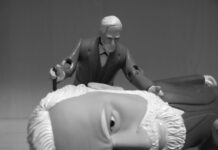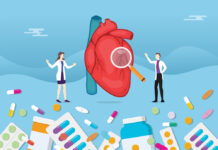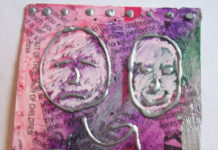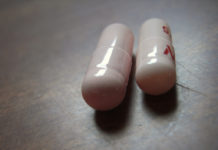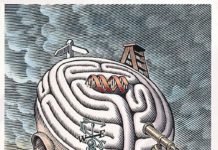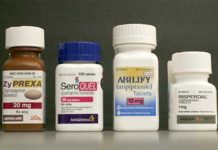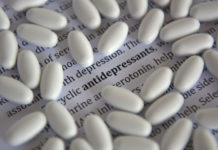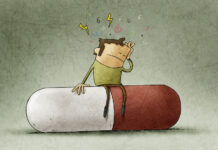Randomized Controlled Trial Confirms That Antipsychotics Damage the Brain
A new study published in JAMA Psychiatry connects antipsychotics with damage to the brain in multiple areas.
The Effects of Practicing Psychotherapy on Therapists’ Personal Lives
A new study, published in Psychotherapy Research, explores how having a career in psychotherapy affects therapists’ personal lives.
Stopping SSRI Antidepressants Can Cause Long, Intense Withdrawal Problems
In the first systematic review of withdrawal problems that patients experience when trying to get off SSRI antidepressant medications, researchers found that withdrawing from SSRIs was comparable to trying to quit addictive benzodiazepines.
Percentage of Americans on Antidepressants Nearly Doubles
From 1999 to 2012 the percentage of Americans on antidepressants increased from 6.8% to 13%, according to a report published this week by the...
ADHD Drugs Linked to Cardiovascular Disease
Service users taking drugs to treat ADHD may be at increased risk for hypertension and arterial disease
Antidepressants No Better Than Placebo for About 85% of People
Researchers can’t predict the 15% who benefit from antidepressants, and the other 85% are unnecessarily exposed to the harms of the drugs.
Mental Health Staff Reluctant to Support Service Users in Tapering Antipsychotics, Study Finds
Study reveals schizophrenia patients find little support from mental health staff in reducing side effects-heavy drugs.
Researcher Acknowledges His Mistakes in Understanding Schizophrenia
Sir Robin Murray, a professor at the Institute of Psychiatry, Psychology, and Neuroscience in London, states that he ignored social factors that contribute to ‘schizophrenia’ for too long. He also reports that he neglected the negative effects antipsychotic medication has on the brain.
Psychiatric Drugs Do Not Improve Disease or Reduce Mortality
Nassir Ghaemi: “Most psychiatric medications are purely symptomatic, with no known or proven effect on the underlying disease. They are like 50 variations of aspirin, used for fever or headache, rather than drugs that treat the causes of fever or headache.”
Study Finds ADHD Drugs Alter Developing Brain
A new study, published in the JAMA Psychiatry, investigates the effect of stimulant ‘ADHD’ drugs on the brains of children and young adults. The...
Rigorous Study Finds Antidepressants Worsen Long-Term Outcomes
A new study conducted by Jeffrey Vittengl at Truman University has found that taking antidepressant medications resulted in more severe depression symptoms after nine years.
Peer-Support Groups Were Right, Guidelines Were Wrong: Dr. Mark Horowitz on Tapering Off Antidepressants
In an interview with MIA, Dr. Horowitz discusses his recent article on why tapering off antidepressants can take months or even years.
ADHD Diagnosis Based on “Illogical Rhetoric,” Analysis Claims
In a philosophically rigorous article, Spanish researcher Marino Pérez-Álvarez examines the logic of attention-deficit hyperactivity disorder (ADHD).
Recovery Rate Six Times Higher For Those Who Stop Antipsychotics Within Two Years
People with "serious mental illness" who stop taking antipsychotics are more likely to recover, even when accounting for baseline severity.
Antidepressant Use Leads to Worse Long Term Outcomes, Study Finds
Results from a 30-year prospective study demonstrated worse outcomes for people who took antidepressants, even after controlling for gender, education level, marriage, baseline severity, other affective disorders, suicidality, and family history of depression.
New Book Deconstructs Ideology of Cognitive Therapy
CBT forwards a hyper-rational perspective of human suffering that complements a managerialist culture of efficiency and institutionalization in the Western world.
Long-term Outcomes Better for Those Who Stop Taking Antipsychotics
Research undermines the prolonged use of antipsychotics in schizophrenia treatment, suggesting improved social functioning and quality of life with discontinuation.
When Psychology Speaks for You, Without You: Sunil Bhatia on Decolonizing Psychology
MIA’s Ayurdhi Dhar interviews Sunil Bhatia about decolonizing psychology, confronting the field’s racist past, colonial foundations, and neoliberal present.
Antipsychotics Lead to Worse Outcomes in First-Episode Psychosis
Those who did not get antipsychotics in the first month were almost twice as likely to be in recovery after five years.
Mental Health Concerns Not “Brain Disorders,” Say Researchers
The latest issue of the journal Behavioral and Brain Sciences features several prominent researchers arguing that mental health concerns are not “brain disorders.”
For People “At Risk for Psychosis,” Antipsychotics Associated with Worse Outcomes
Researchers studied whether antipsychotics could prevent transition to full psychosis and found that the drugs worsened outcomes.
Involuntary Hospitalization Increases Risk of Suicide, Study Finds
New study finds that people who felt they were coerced into being hospitalized were more likely to attempt suicide later.
New Study Concludes that Antidepressants are “Largely Ineffective and Potentially Harmful”
A new study published in Frontiers in Psychiatry concludes that “antidepressants are largely ineffective and potentially harmful.”
Adding Antipsychotics Worsens Outcomes in Psychotic Depression
Outcomes were worse for all, with young people on combination therapy twice as likely to experience rehospitalization or death by suicide than those on antidepressants alone.
Bipolar Diagnosis Linked to Childhood Adversity
With the ties between traumatic childhood experiences and mental health issues, should we continue to focus on biological approaches?


